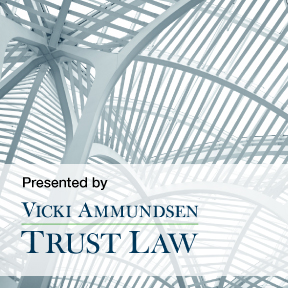 “… Mandatory duties are part of every trust relationship. They will be implied into every true trust, even where a trust deed attempts to exclude them. In some cases the attempted exclusion of a mandatory duty may be evidence that the settlor did not in fact have the requisite intention to create a trust but intended some other legal relationship.
“… Mandatory duties are part of every trust relationship. They will be implied into every true trust, even where a trust deed attempts to exclude them. In some cases the attempted exclusion of a mandatory duty may be evidence that the settlor did not in fact have the requisite intention to create a trust but intended some other legal relationship.
There are other duties that the courts have found to arise in a trust unless the trust deed states that they do not apply. We classify these as default duties. They are implied in the trust relationship if the trust deed is silent on the matter. We consider it is useful to have a list of duties that apply to a trustee in the absence of any trust term to the contrary. Some of these duties may be excluded outright (such as the duty to act without reward) and some may be modified to alter the extent to which they must be met (such as the duty not to be unfairly partial).”
Review of the Law Trusts at 5.10 and 5.11.
HIGHLIGHTS
This webinar, which will conclude with a question and answer session, will consider the mandatory duties together with the “nuances and variations” that form the backdrop to these duties.
The webinar will consider the mandatory and default duties in detail, how existing trust terms are to be read in light of these duties, the extent to which default duties can be modified or excluded, and the extent to which trustees must regardless ensure they act for a proper purpose.
Other topics covered will include:
The webinar will also include an update with respect to relevant case law.
WHY ATTEND
The introduction of mandatory and default duties means it is essential that trustees and their advisers have a clear understanding of how to read existing duties in light of the Trusts Act 2019, what options are available when a default duty has not or cannot be modified and how to ensure adherence to the proper purpose rule.
21 June 2023
Attendees will learn:
This webinar is targeted at practitioners at all levels but will be of particular benefit to practitioners who advise trustees or who are trustees or directors of trustee companies.
Vicki Ammundsen, Director, Vicki Ammundsen Trust Law Limited.
1.5 CPD Hours